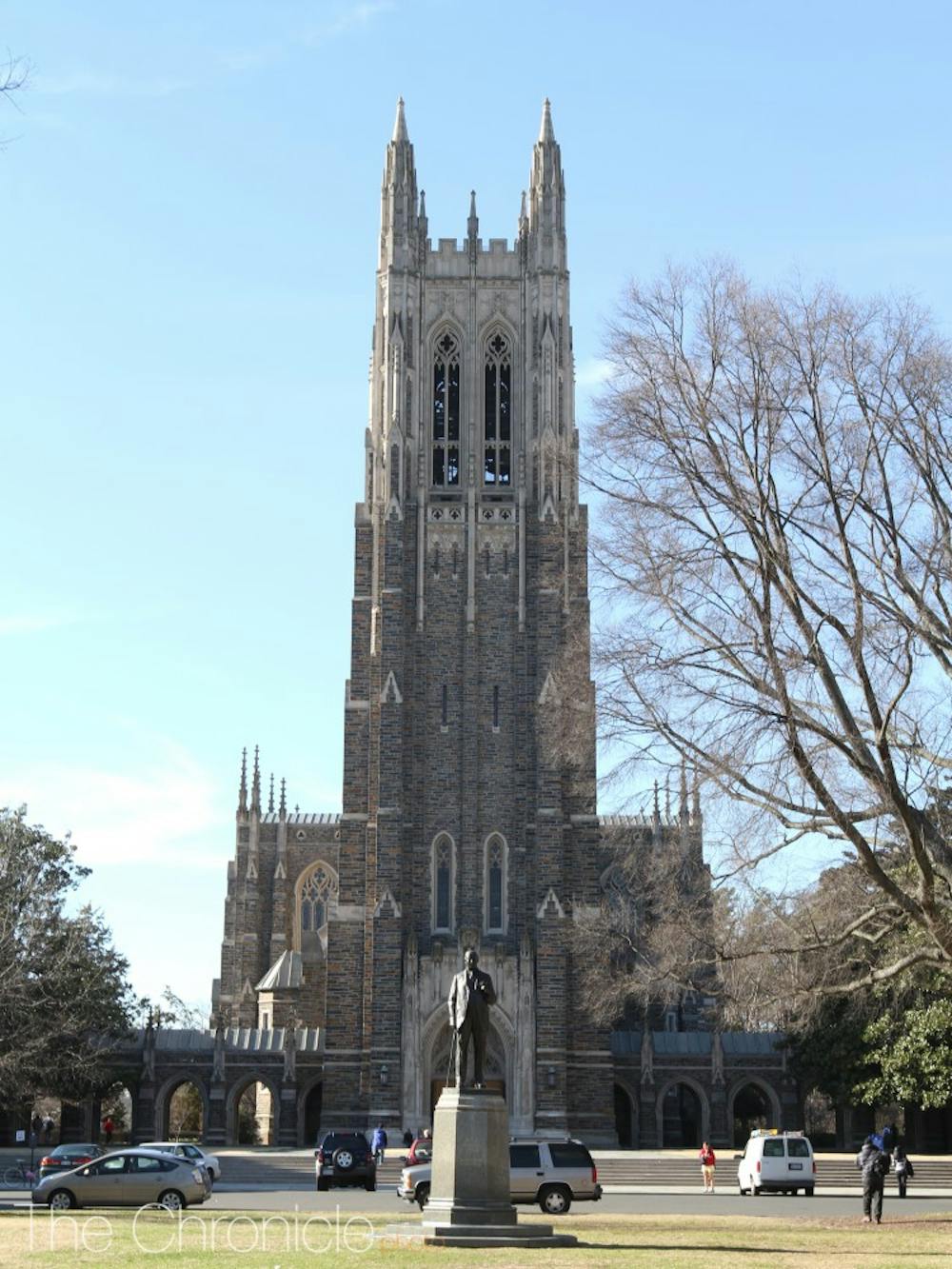$1.6 billion. That’s how much The Duke Endowment has given to Duke University since 1924, making it the University’s largest donor.
The Duke Endowment—a private foundation that is a separate entity from the University’s endowment—was founded by James B. Duke when Trinity College became Duke University in 1924. Renovations, newborn health care programs, financial aid and field education programs have been among the foundation’s financial priorities on campus.
“It has, as its mission, supporting education and health care and other good causes in North and South Carolina,” said Michael Schoenfeld, vice president for public affairs and government relations.
Unlike the Duke University Endowment, which is the primary investment vehicle for Duke’s money, The Duke Endowment is a foundation that allocates money to the University through gifts and grants. The foundation also donates to Davidson College, Furman University, Johnson C. Smith University, rural United Methodist churches and hospitals or nonprofits in the Carolinas.
In addition to the amount that The Duke Endowment contributes annually to the school—as determined by its bylaws—the foundation has a sizable discretionary fund to spend in the form of grants. Duke often applies for these grants as it would for any other foundation, Schoenfeld said.
Susan McConnell, director of the higher education program for The Duke Endowment, wrote in an email that Duke receives grants in the Endowment’s four program areas: education, health care, rural churches and childcare.
Educational priorities at Duke have received the greatest amount of funding, totaling $1.3 billion, McConnell wrote. Across The Duke Endowment’s other three program areas, Duke has received $200 million for health care, $92 million for rural churches and $28 million for childcare.
In the childcare program, McConnell wrote, the Endowment has partnered with the Center for Child and Family Policy, contributing $7.4 million since 2000 to collaborate on evidence-based programs. An additional $13 million in grants has gone toward Durham Connects, a community-wide nursing home visiting program for parents of newborns, which has since been adopted in another dozen states, she wrote.
The rural church program has worked with Duke’s Divinity School to support field education and summer programs for pastors. In addition, the Endowment collaborated with Duke on the Clergy Health Initiative, a program designed to improve the physical well-being of Methodist pastors. The foundation has contributed $62 million for these two programs over the last two decades.
“Field education places Divinity School students in rural churches, which provides staffing and new ideas/perspectives for these churches while preparing pastors to lead their own congregations,” she wrote.
The Duke Endowment has also had a hand in several of Duke’s largest endeavors. McConnell wrote that the foundation has given $80 million to renovate the Brodhead Center, Baldwin Auditorium and Page Auditorium.
The foundation has also directly supported programs for students, including a $15 million gift to DukeEngage and a cumulative gift of $156 million for scholarships and financial aid since 1961.
“Both the University and the endowment share the priority of ensuring that deserving students from all socio-economic backgrounds can obtain a Duke education,” McConnell wrote.
Although the University and the Endowment collaborate on several projects stretching through various academic institutions, the two organizations are completely separate, with The Duke Endowment focusing on its four program areas in North and South Carolina, Schoenfeld added.
“The Duke Endowment and the University are two separate entities—they have two separate boards, though obviously they’re very closely connected by history and by tradition and by mission and by mandate,” Schoenfeld said.
McConnell noted that the shared history between the Endowment and Duke University began nearly a century ago with James Duke’s Indenture of Trust, which designated the grants that would turn Trinity College into Duke University.
Groups that donate to Duke make contributions that may not be fully realized until years later, Schoenfeld explained, noting that some of the scholarships given to students today have their roots in donations from decades earlier.
“Those kinds of long-term relationships, those kind of connections with the University, in a sense, pay dividends basically for the life of the University,” he said.
Get The Chronicle straight to your inbox
Sign up for our weekly newsletter. Cancel at any time.

